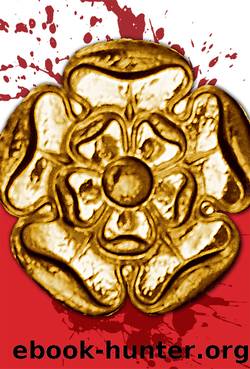Tudor Survivor by Margaret Scard

Author:Margaret Scard
Language: eng
Format: epub
Tags: Tudor Survivor
ISBN: 9780752469256
Publisher: The History Press
Published: 2011-09-29T00:00:00+00:00
10
Lord High Treasurer and Marquis of Winchester
Paulet was well rewarded for supporting Warwick. On 19 January 1550 he was created Earl of Wiltshire for services to the King and to Henry VIII, with a grant of £20 a year in support of the dignity.346 In reality his creation was a âthank youâ from Warwick and to encourage future support. At the same time, Russell was elevated to Earl of Bedford. Parliament had been sitting since November and when the two men resumed their seats in the Lords on the following day, they joined the elite group of thirteen other Earls and the two Marquises of Dorset and Northampton who were the only nobles above the rank of baron. The Dukes of Somerset and Norfolk, both prisoners in the Tower, could not attend Parliament.
Further honours came to Paulet in February when he was appointed Lord High Treasurer in place of Somerset, relinquishing his titles of Lord Great Master and Lord President to Warwick.347 He held this post for 22 years until his death in 1572, after being re-appointed by both Queen Mary and Queen Elizabeth. The prestigious position brought with it certain dignities such as holding the basin of water while the monarch washed his hands when dining in state.348
As Lord Treasurer he had charge of the Exchequer. The position had evolved because a Kingâs wealth consisted not of paper money but of real treasure â gold and silver plate and jewels as well as coins. This treasure was stored in chests and store rooms and the Treasurer and his two deputy chamberlains were responsible for its safety. As treasure moved in and out of their control, receipts were issued to charge and discharge them of responsibility. By Edward VIâs reign, much of the Kingâs income was raised by the finance courts but the Exchequer still handled income from ancient sources. This was the money collected as rent and fees from tenants, customs and subsidies, fines from royal justice such as the Courts of Chancery, Star Chamber and the Kingâs Bench, and fines from local justice such as the assizes and hearings before magistrates.
The Exchequer was the largest department after the Household and was divided into two parts â the Upper Exchequer or Exchequer of Account and the Lower Exchequer or Exchequer of Receipt. The former was where accounts were drawn up, legal disputes settled and the payment of overdue debts enforced. The latter was the treasury and pay office, responsible for the receipt, safe-keeping and issue of all money in the Exchequer. Like the Board of Greencloth, the Exchequer took its name from the great exchequer table. This measured about ten feet by five feet and was covered in a black cloth marked out with white lines that formed squares to resemble a chequerboard. A shallow ledge around the edge gave it the appearance of a gaming table and counters placed on the cloth represented a value from 1d to £1,000 determined by the square on which they were placed.
In
Download
This site does not store any files on its server. We only index and link to content provided by other sites. Please contact the content providers to delete copyright contents if any and email us, we'll remove relevant links or contents immediately.
Women and Jewish Marriage Negotiations in Early Modern Italy by Howard Tzvi Adelman(444)
Warrior King by Wilbur Smith(407)
The Battle of Austerlitz by 50minutes(307)
18 real-life stories of serial killers and murderers with solved and unsolved killings from the USA, UK, Europe, and beyond. by Ben Oakley(303)
Violence and Emotions in Early Modern Europe by Susan Broomhall;Sarah Finn;(298)
Who's Who in the Zulu War, 1879: The British by Adrian Greaves Ian Knight(293)
The American Crisis by Unknown(292)
Youth, Heroism and War Propaganda: Britain and the Young Maritime Hero, 1745â1820 by D. A. B. Ronald(287)
The Seeker by S. G. MacLean(247)
The Origins of French Absolutism, 1598-1661 by Alan James(237)
The Traitor of Colditz by Robert Verkaik(229)
The Dutch East India Company and British East India Company: The History and Legacy of the Worldâs Most Famous Colonial Trade Companies by Charles River Editors(228)
The Thirty Years War â Complete by Friedrich Schiller(224)
A Genius for Confusion by Richard M. Fried(217)
The Slave Trade in Africa by Simon Webb;(216)
Invisible Worlds by Peter Marshall(214)
Fires of Faith by Catholic England under Mary Tudor(212)
The Opium Wars: Exploring the Addiction of Empires from Beginning to End by Ramos Adrian & Compacted History(204)
Interest and Connection in the Eighteenth Century by Jacob Sider Jost(204)
